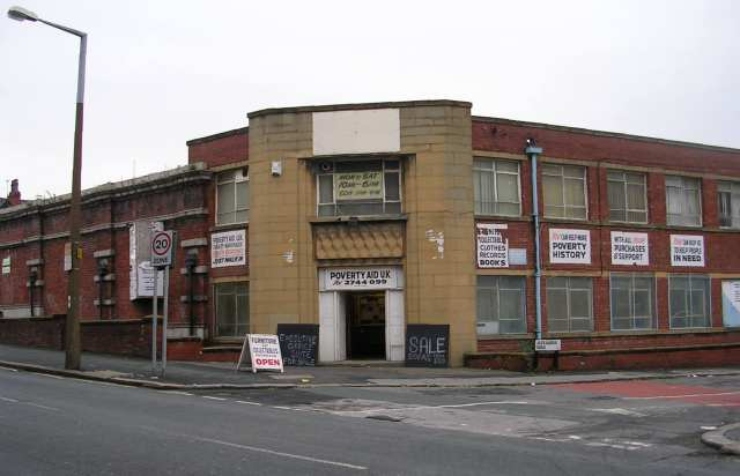The world is a fundamentally different place from the 1990’s and 2000’s, an era of fast growth in international trade and investment. Now there is a sharper challenge to the notion that a more globalised way of doing business is necessarily a good thing. The World Trade Organization is struggling to carry out its remit. How these challenges are – or are not – resolved is an open question. John Alty and Robert Basedow write that research is never going to solve the problem on its own. Politics and diplomacy will be key.
In the 1990’s and 2000’s international trade and investment increased rapidly, companies created supply chains across the world, and national markets became ever more interconnected, especially as China joined the international trading system. This was accompanied by economic growth and higher living standards for millions of people across the world.
Fast forward to 2023 and the international picture looks very different. The COVID pandemic, the war in Ukraine and geopolitical rivalry, especially between the US and China, have all created problems for international trade as manifest inter alia in the paralysis of the WTO’s Dispute Settlement Body. Moreover there is a sharper challenge to the notion that smoothing the path to a more international – or globalised – way of doing business is necessarily a good thing: global supply chains and low barriers have meant more obvious domestic impacts, for instance as a result of different standards of production; other policy objectives, such as addressing climate change, have led to domestic regulatory or industrial policies that restrict or distort trade in order to achieve their goals.
As a result many commentators predict that the trade and investment world will become increasingly regionalised rather than truly global. The World Trade Organisation (WTO), which was set up to allow its members to set and enforce rules to prevent the fragmentation of trade, is struggling to carry out its remit.
How these challenges are – or are not – resolved will affect all of us across the world. The cost of fragmentation has been estimated by the WTO at some 5% of world GDP, with particular impact on the poorer and developing countries. Before the gathering of expert speakers from around the world to explore these issues, we jotted down some initial thoughts:
First, as you would expect from an academic institution, we’d say it’s important to look at the evidence: how far is trade and investment actually being affected. Views on this differ: for instance in a recent paper Professor Simon Evenett of the University of St Gallen argued that globalisation may have slowed but it has not gone into reverse. But we need to try and look ahead and assess future trends as well as past developments, which makes our task harder. For instance, digitally enabled trade has become increasingly important both for goods and services, and there is evidence that as governments act to regulate data flows, the barriers to trade are increasing.
Secondly, we need to understand which barriers most deter trade. That means talking to businesses about the costs and complexities of trading internationally. Sometimes issues that governments spend ages arguing about are not actually that important for business (and vice versa).
Thirdly, we need to assess the impacts of future policies and weigh their costs and benefits. Measures that seek to achieve other objectives such as higher animal welfare standards may affect trade, but by how much compared with their welfare benefits?
We need to recognise, however, that research is never going to solve the problem on its own. People will always argue about evidence and will attach different weights to different goals. So politics and diplomacy will be key.
It’s unrealistic to expect politicians to separate trade from other foreign policy issues such as security, human rights, or climate change. The world has also changed significantly since the trade rules were set in the late 1990s. So, repeating formulas from what worked then is unlikely to be effective. We see the role of trade policy advisers as being to ensure that, as far as possible, a trade lens is applied to the many policy issues that interact with trade. What the period of globalisation taught us is that openness to trade and investment did overall have a positive impact on the world’s economy, even if there were negative consequences for some groups or issues. That suggests that we don’t want to throw the trade baby out with the bath water, and it remains important to keep trade and investment flowing internationally.
Individual issues rapidly become complicated, but this suggests that if, for instance, countries are concerned about the resilience of their supply chains, it makes sense for them to diversify their sources of supply rather than attempt to do everything themselves. Climate change is a challenge because there is no consensus on the best way to decarbonise. Broadly, the EU has focused on regulation to ensure businesses pay the cost of their carbon emissions, whilst the US prioritises incentives to subsidise the production of green tech products. Because the trade effects of these measures are different, they are leading to accusations of protectionism and distortion of competition from both sides, which could disrupt wider trade flows.
Ideally rules would be agreed by all members of the WTO, so that everyone’s interests could be taken into account. However as the WTO has to proceed by unanimity, it is very difficult to move forward. In the 1990’s, if Japan, the US, and the EU could agree, then others were likely to fall into line. But with China, India, South Africa, Brazil, and others having now become major world players, that is not going to happen. As a result, contentious issues relevant to today’s problems have to be solved in other ways. This can be done through “coalitions of the willing” sometimes linked to the WTO – such as in the context of the so-called Joint Statement Initiatives – but not involving all their members. Such plurilateral initiatives are happening in the area of e-commerce and environmental goods and services. But the wider the participation, inherently desirable, the greater the challenge of reaching worthwhile agreements.
In addition, politicians and policymakers need to be able to sell the results of any agreements back home. Given that any agreement that produces change will almost certainly affect some group negatively, and the economic difficulties most economies are already experiencing, that is no small task.
Such are the challenges facing policymakers in the field of trade. Join us on 1 February to see what our expert panel thinks the answers might be.
♣♣♣
Notes:
- This blog post represents the views of its author(s), not the position of LSE Business Review or the London School of Economics.
- Featured image by Manson Yim, under Unsplash
- When you leave a comment, you’re agreeing to our Comment Policy.






